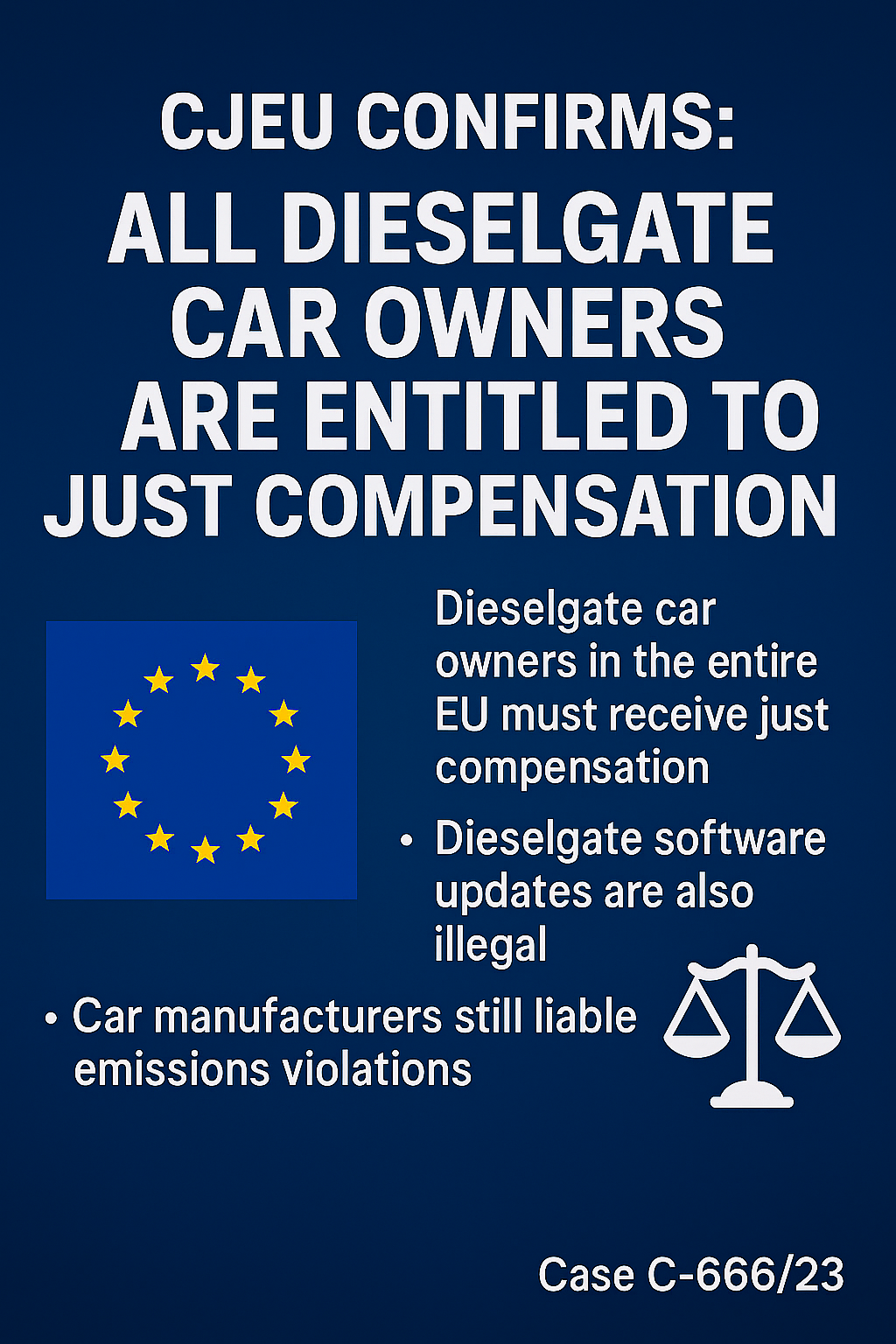German Ruling on Dieselgate Enables Justice For Thousands Of Affected Persons In Estonia
On May 25, 2020, the German Federal Court of Justice (BGH) in Karlsruhe handed down the most important landmark ruling to date on the emissions scandal in Europe. The Federal Court of Justice ruled that customers affected by this are in principle entitled to claim damages against the car manufacturer concerned. Although the ruling comes from the German court, this also allows affected parties in Estonia to establish the possibility of justice for the purchase of a car affected by Dieselgate.
The ruling (BGH ruling of 25.05.2020. VI Ref: 252/19) dealt with a case in which the plaintiff bought a used VW Sharan 2.0 TDI match in 2014. After Volkswagen admitted in October 2015 that it had installed defeat devices in its diesel vehicles, the buyer sued Volkswagen in 2017 and demanded the full purchase price back as damages.
In its ruling, the German Federal Court of Justice ordered Volkswagen to pay damages, although the buyer did not purchase the vehicle from Volkswagen but from a car dealer. However, the buyer had to have some of the kilometers driven by him deducted from the purchase price as so-called compensation for use. The BGH ruled that Volkswagen had intentionally and immorally deceived the buyer by installing illegal defeat devices in diesel cars and was therefore entitled to damages. Although the ruling only concerned a specific Volkswagen engine, the considerations underlying the ruling can and have already been applied to other engines and manufacturers. In Germany, Porsche, Audi, Skoda and other manufacturers with other engines that contained illegal defeat devices have been successfully sued.
The scope of this decision had and has major implications in both Germany and Estonia. This is because in Germany, at that time, there was still no last-instance decision on the Dieselgate proceedings in Germany. Volkswagen had previously managed to avoid such a landmark decision for years by reaching settlements with plaintiffs in advance. For thousands of cases still pending in Germany at the time of the ruling, this decision brought legal certainty. However, the significance of the decision should not be underestimated in Estonia either. This is because Estonian civil law, in particular, is largely in line with German law, which means that the judgments can also be applied to Estonian law and, in particular, to Estonian tort law.
But this is not enough, claims for damages by Estonian purchasers can also be asserted against car manufacturers in German courts using these principles.The European treaty provides that car manufacturers may be sued at their place of business, regardless of whether the plaintiff bought the car in Estonia at the time. In principle, this also opens the door for Estonian buyers of vehicles affected by Dieselgate to sue for damages.
Learn more about how to enforce claims for damages in Dieselgate cases here.










